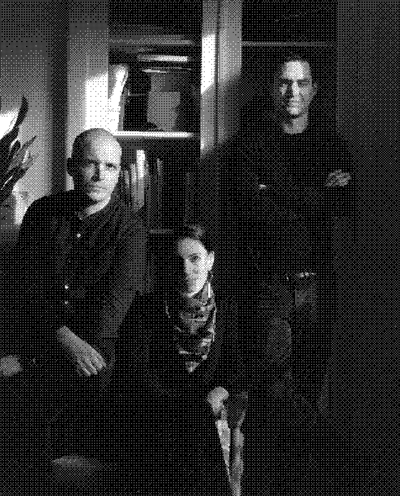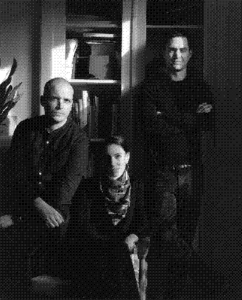References Development Strategy Advice Management Prospective Creativity Clients Communication Process Prospection Work culture Competition Presentation Design Typography Agents Advertising Ai Finance Architecture Investment Education Cgi Trend Fashion Recruitment Graphic design Nft Music Marketing Photography Sound design Research Blockchain Sustainability Crypto Technology Metaverse
12 excerpts on the topic “Ai”
[…] AI is definitely worrying for the creative industries, but I also think it highlights the value of real craft. As digital content becomes easier to generate, the handmade, the tactile and the imperfect will feel even more meaningful. There is something powerful about knowing something truly exists, that it was built, touched and tested in the real world. That emotional connection cannot be replicated by AI. […]
[…] AI might actually push things in the opposite direction and make live experiences, installations and performance even more important. We are already seeing that in music and culture, where shows and physical experiences are becoming bigger and more immersive. It feels like a space full of opportunity for us. […]
[…] The market will always change, and now with AI, you can see it shifting. A lot of people will probably lose their jobs because of it. For example, one of our employees recently posted about a new InDesign feature that lets you copy a design from a card. When I saw that, I thought about the small neighborhood design shops, the ones making café logos or local posters. Not to sound snobbish, but AI is likely to filter out a lot of lower-end design work. You already see AI-generated, low-quality images on posters all over cities. The key is to maintain a human touch, a texture, something unique. That’s what will keep us in demand through all these changes. […]
[…] It’s dangerous because, in the end, the chatbot tells everyone the same thing and just feeds them what they want to hear. It creates this false sense of connection, but in reality, everyone’s just sitting there feeling lonely. […]
[…] From a professional standpoint, I see every field as constantly evolving. I actually welcome AI with enthusiasm. I know that might bother some people, but despite caring about my own technical ability, I’ve never believed that the artistic gesture or creative solution was primarily a matter of execution, it’s really about ideas first and foremost (…) What does concern me more is the future of musicians in general, based on the state of the industry I was describing earlier. […]
[…] We’re currently experimenting a lot with AI. But we don’t fear that AI will replace our work. We believe that behind AI, there still needs to be a designer to guide it toward the desired outcome. We see AI more as a tool that helps us in the process and gives us more time to think and refine our ideas. Of course, in terms of research and aesthetics, it’s a completely different approach […]
[…] AI being such a buzzword and generating a lot of noise, we can actually see its potential, we already use it a lot every day.
Since we have a strong understanding of technology, we can approach it from both a technical and creative perspective. We have so many opportunities for exploration and experimentation. […]
Since we have a strong understanding of technology, we can approach it from both a technical and creative perspective. We have so many opportunities for exploration and experimentation. […]
[…] Computers are already better than humans at chess, yet we don’t watch computers play—we watch humans. Similarly, robots can outperform athletes in certain Olympic events, but we’re not drawn to that either. What makes human performance compelling, whether in sports or design, is its randomness and unpredictability. So yes, there will be studios entirely run by machines, but the vision, the spirit, and the driving force behind the practice will remain critical. […]
[…] It’s fascinating to think that my five-year-old daughter already has GPT-4o as her baseline. She interacts with it naturally through voice interfaces, and by the time she’s a teenager, engaging with machine intelligence will be second nature to her. For us, we had the advantage of developing intuition and building experience without AI as an immediate tool. For today’s students, the challenge is to integrate these technologies while still developing real-world experience, conducting field research, and shaping a distinct vision and approach to their work. Interestingly, rare books and traditional publications are becoming even more valuable. Unlike digital content, these sources haven’t been extensively trained into AI models, making them repositories of deeper, more exclusive knowledge. […]
[…] it’s part of evolution. You can embrace it or you can just fall behind. Anything new generally causes people to be speculative. I know with crypto I’ve done it. NFTs in particular I was never super fond of. They’ve been around a long time, but I would say language learning models have already been used and you can benefit from them. So I’d say embrace it because it can make you. […]
[…] it’s almost so easy to spot when something’s been generated by AI. So you could sit here and say, ‘Oh yeah, we don’t have to worry about that because it’s easy to tell whether or not somebody made it.’ But it would be foolish to say that there’s not going to be a day when you won’t be able to tell. And when that happens, society will either reject it or embrace it. And I would assume that it’s going to be an embrace, because humans naturally fall to whatever creates the least amount of friction in their lives. […]
[…] I think we’re looking at it too black and white. It’s just a tool, so it’s part of our job. People are looking toward us for expertise, and to better understand how these tools may benefit their business. Maybe it’ll help spark an idea, but I don’t think it’ll ever fully replace humans. You can almost always see when someone tries to completely remove the human part of it. Machines can’t feel. […]

